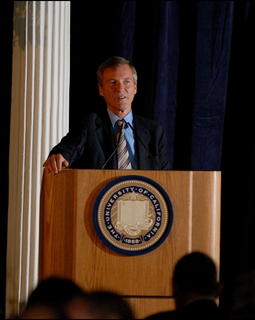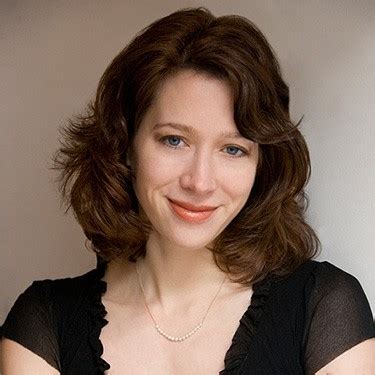A Quote by Rumi
A new moon teaches gradualness
and deliberation and how one gives birth
to oneself slowly. Patience with small details
makes perfect a large work, like the universe.
What nine months of attention does for an embryo
forty early mornings will do for your gradually growing wholeness
Related Quotes
The Tao gives birth to One. One gives birth to Two. Two gives birth to Three. Three gives birth to all things. All things have their backs to the female and stand facing the male. When male and female combine, all things achieve harmony. Ordinary men hate solitude. But the Master makes use of it, embracing his aloneness, realizing he is one with the whole universe.
To work for months and months and months, you kind of spill blood and give your heart and soul to something, and then you just sort of let it out into the universe and hope that people like it. How you see it in your head is never how you see it on the screen, so it's almost like an out of body experience.
I love the values football can teach. It gives young people a sense of how to defer present gratification for future success, it teaches self-discipline, it teaches teamwork, it gives them a bonding experience that can be hard to find somewhere else, it teaches the ability to process large amounts of information and apply it in real time.
It is God, Who is merciful and grants everyone what he needs, Who is building him up when He gives him more than he needs; in doing so He shows the abundance of His love for men and teaches him to give thanks. When He does not grant him what he needs, He makes him compensate for the thing he needs through the working of the mind and teaches him patience.
The sweetness of dogs (fifteen) What do you say, Percy? I am thinking of sitting out on the sand to watch the moon rise. Full tonight. So we go and the moon rises, so beautiful it makes me shudder, makes me think about time and space, makes me take measure of myself: one iota pondering heaven. Thus we sit, I thinking how grateful I am for the moon’s perfect beauty and also, oh! How rich it is to love the world. Percy, meanwhile, leans against me and gazes up into my face. As though I were his perfect moon.
It is important to have determination and optimism and patience. If you lack patience, even when you face some small obstacle, you lose courage. There is a Tibetan saying, "Even if you have failed at something nine times, you have still given it effort nine times." I think that's important. Use your brain to analyze the situation. Do not rush through it, but think. Once you decide what to do about that obstacle, then there's a possibility that you will achieve your goal.
Slowly but surely I have been soaking Rilke up these last few months: the man, his work and his life. And that is probably the only right way with literature, with study, with people or with anything else: to let it all soak in, to let it all mature slowly inside you until it has become a part of yourself. That, too, is a growing process. Everything is a growing process. And in between, emotions and sensations that strike you like lightning. But still the most important thing is the organic process of growing.
Here is an example of Confucius sayings: "It does not matter how slowly you go so long as you do not stop." In a few words, Confucius teaches us about patience, perseverance, discipline, and hard work. But if you probe further, you will see more layers. Confucius' philosophies have significantly influenced spiritual and social thought. His views bear insight and depth of wisdom. You can apply his teachings in every sphere of life. Confucius' profound teachings are based on humanism.
To begin with, our knowledge grows in spots. The spots may be large or small, but the knowledge ever grows all over... What you first gain from them is probably a small amount of new information, a few new definitions, or distinctions, or points of view. But while these special ideas are being added, the rest of your knowledge stands still, and only gradually will you 'line up' your previous opinions with the novelties I am trying to instil, and modify to some slight degree their mass.
One Christmas at the very beginning of your twenties when your mother gives you a warm coat that she saved for months to buy, don’t look at her skeptically after she tells you she thought the coat was perfect for you. Don’t hold it up and say it’s longer than you like your coats to be and too puffy and possibly even too warm. Your mother will be dead by spring. That coat will be the last gift she gave you. You will regret the small thing you didn’t say for the rest of your life. Say thank you.






































